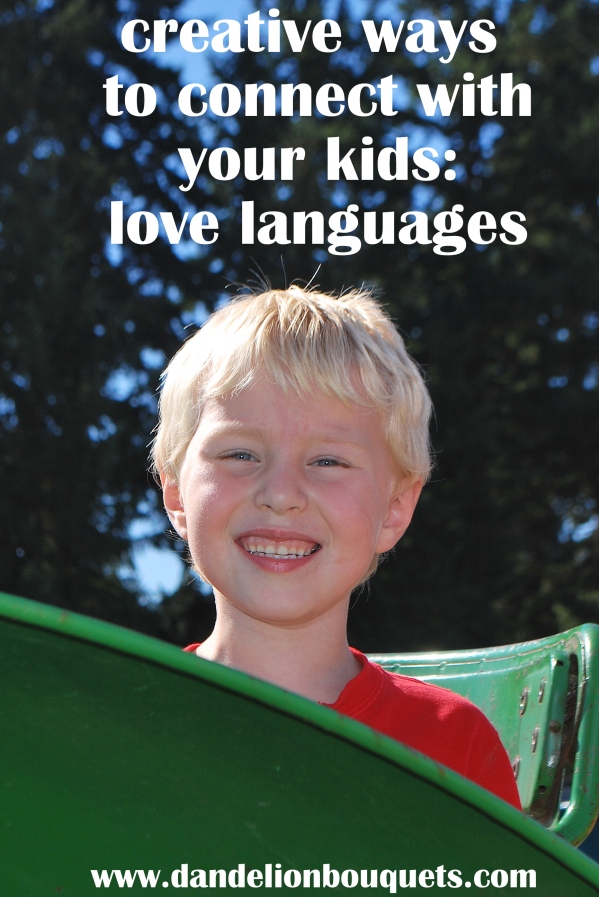Two weeks ago I posted about a special way I had discovered to use in communicating with my oldest child. (If you missed it, you can read here about the mom/daughter journal we started.) Today I am continuing this series about connecting with your kids by writing about another child of mine. This boy is the funniest kid and has amazing talents in a lot of areas. If I give him video game time undisturbed, he is the happiest boy on the planet. When you first meet him, you might mistakenly assume from his personality that he loves to be the center of attention. While he can definitely be louder than life, my little man often disappears to get some quiet time and is most content when he is left alone. He is my earliest riser, getting himself some cereal and curling up on the couch underneath a quilt to eat by himself. It has been quite the challenge to find a way to connect with this solitary boy.
One day while casually scrolling through Facebook, I stopped at one of my favorite homeschooling pages, Simple Homeschool. There was a picture of a red heart with the title “The Five Love Languages of Homeschooling”, and underneath Jamie had captioned it: “Have you discovered your child’s love language? It might just be the homeschooling break-through you need.” Intrigued, I clicked through to the post on Jamie’s blog and began to read. Many years ago, I had taken Dr. Chapman’s love language test and found that mine was words of affirmation. I had never considered the love languages to be pertinent to kids, but the more I contemplated it, the more it made sense. There are five general love languages: words of affirmation, acts of service, receiving gifts, quality time, and physical touch. Jamie started off her post speaking about the love language of physical touch. The first two sentences jumped out at me: “A child who best receives love through physical touch desperately needs hugs, kisses, and pats on the shoulder. Not having enough can leave them feeling that they’ve done something wrong and that you are not pleased with them.” Somehow I felt immediately that these sentences were describing my Mikey. Physical touch? Well, he had been a little cuddle bug when he was just a baby, always pleased to be in my lap with his head nestled near my heart. But surely physical touch was not what he needed now. If so, why did he always disappear and crave his alone time? God’s voice persisted in my head. “Yes, this is the key to your boy’s heart.”
I wasn’t so sure of this discovery. I thought perhaps it was a wild guess, a shot in the dark in an absurd attempt to make a connection with my younger son. So I prayed, and God said, “Do it!” I decided to conduct it as an experiment of sorts. Over the next several days, I would be very intentional in giving him high fives, hugs, fist bumps, back rubs, etc., and see how he received it. I am by nature a very touchy-feely person anyway; so it wouldn’t be too much of a stretch for me, but I hoped it wouldn’t be off-putting to Mikey or push him even further into his solitude. The first day, I gave him extra hugs as he came stumbling into the kitchen to make his breakfast. I offered to sit and snuggle with him on the couch while he ate. To my surprise, he accepted. Throughout the school day, I made sure to pat his back, touch his hand encouragingly when he was struggling with a word, and invited him to sit on my lap while we did reading. The next day went much the same way, except this time I could feel him leaning in as if asking for more. By the third day, he was actually seeking ME out for hugs and kisses and “love you Mama”s with his face buried in my neck. I was astonished at the change in my kid. The more we physically connected throughout the day, by hugs, shoulder pats, etc., the more he opened up and the less he crept away to his room for quiet. Even his grandma noticed this change in him.
Now that I know with certainty that physical touch is my son Mikey’s love language, I need to make sure that I am “speaking” to him often in that language. It fills up his love cup and spills over to the others in his life. He is kinder to his siblings, more thoughtful to others, more expressive of his thoughts and desires, and more open to God’s work in his life. He was a fantastic kid before we started this experiment; now he is a fantastic kid that feels loved and connected to in all the right ways.
I encourage you to take the time to find out your child’s love language. If your child is old enough, they can take this online quiz at Gary Chapman’s website to help you both figure it out. The time spent evaluating and determining their love language and then implementing it will be paid back in dividends you can’t imagine.
(Also, as it turns out, there is a love languages book just for kids. I think this one is going to be added to the Foster family library!)

